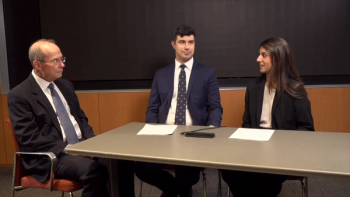
Innovation Series: Putting the buzz of large language models in ophthalmology into perspective with Robert T. Chang, MD
Robert T. Chang, MD, from Stanford University discusses how large language models are transforming ophthalmology by enhancing patient communication, documentation, and education, while also addressing ethical considerations and potential future applications in glaucoma care.
In this episode of the Ophthalmology Times EyePod podcast, Robert T. Chang, MD, from Stanford University, discusses the role of large language models (LLMs) and AI in ophthalmology. He explains how LLMs, like ChatGPT, are transforming information retrieval, patient communication, and education.
Chang emphasizes how AI assists clinicians in documenting patient interactions, creating customized educational content, and exploring potential future uses, such as efficient data aggregation for research. He also addresses challenges, including ethical concerns around data privacy and the need for clinicians to verify AI outputs.
Chang highlights how LLMs could streamline workflows and support both patient care and professional training, offering a promising, albeit cautious, outlook on AI's impact in ophthalmology.
Newsletter
Don’t miss out—get Ophthalmology Times updates on the latest clinical advancements and expert interviews, straight to your inbox.





























